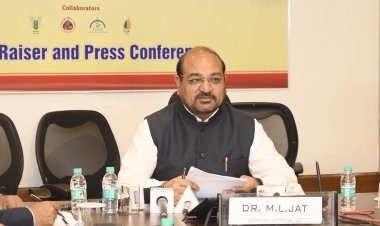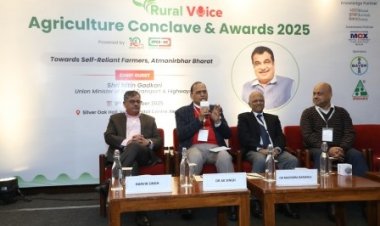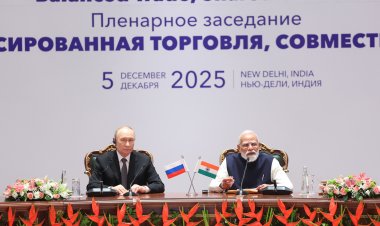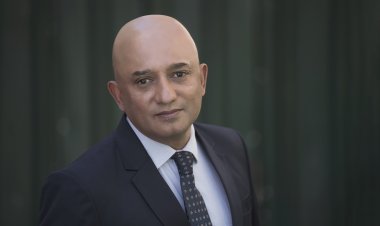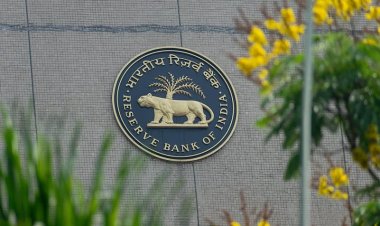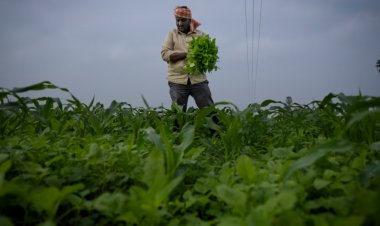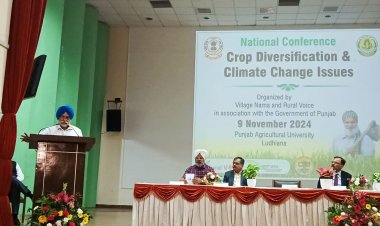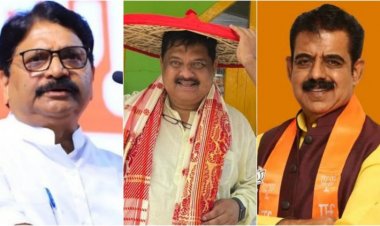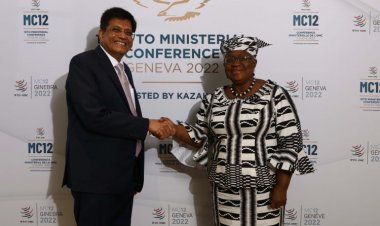Govt to look into farmers' issues: Balyan at Rural Voice Conclave
At an agriculture conclave organized in New Delhi by Rural Voice, a digital media platform, on the occasion of its second anniversary on Friday, expert panellists raised various issues faced by agriculturalists and the farmers' community, drawing assurance from the government that their problems will be looked into, transcending political barriers.
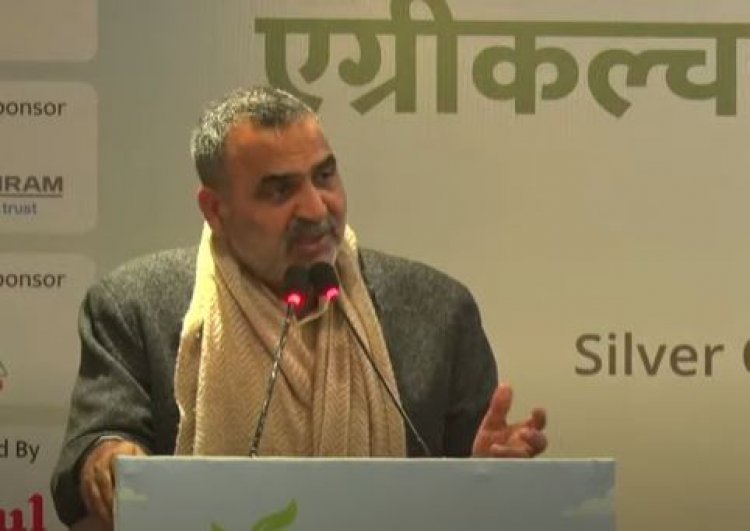
At an agriculture conclave organized in New Delhi by Rural Voice, a digital media platform, on the occasion of its second anniversary on Friday, expert panellists raised various issues faced by agriculturalists and the farmers' community, drawing assurance from the government that their problems will be looked into, transcending political barriers.
Wrapping up the day-long programme divided into four sessions, Union Minister of State for Fisheries, Animal Husbandry and Dairying Dr Sanjeev Balyan said farmers should get the benefits of new technologies and new varieties of crops and noted that the media too had a key role to play.
"My efforts will always be there to help farmers," Balyan said, as he showered praise on Rural Voice and its Editor-in-Chief Harvir Singh for highlighting various problems of the farmers and issues facing policy framers.
The Union minister especially lauded Singh's efforts to hold the Conclave on the occasion of Kisan Diwas observed in the memory of kisan neta (farmer leader) Chaudhary Charan Singh.
"Just as Chaudhary Charan Singh cannot be separated from the kisans, in the same manner Rural Voice cannot be separated from farmers," Balyan told a cheering audience.
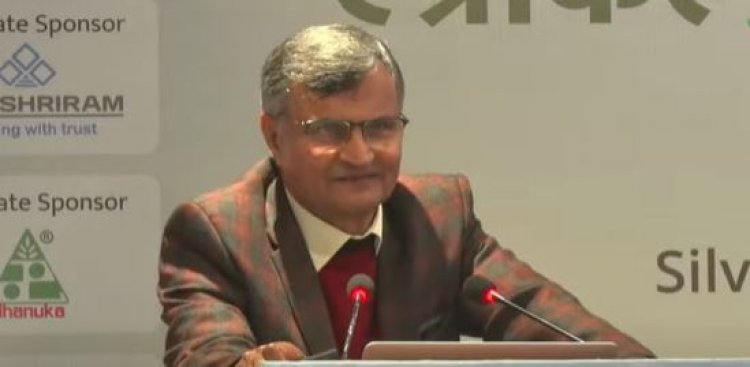
Earlier, Niti Aayog member Ramesh Chand said the minimum support price (MSP) of crops can guarantee stable prices but not always the best rates, which can only be ensured through fair competition in the market.
Speaking on the demand of farmer groups to make MSP a legal right, Chand noted that cultivators want it in order to get the best price for their produce and also to protect themselves from price fluctuations.
"In my view, MSP is not the best price in all situations. It is definitely a stable price but not the best price. Best price comes from competition. If there is competition in the market, farmers can get the best price," he said.
The government fixes MSP for 22 crops. It procures wheat and paddy for supply through ration shops under various welfare schemes. Some quantities of oilseeds and pulses are also procured.
Chand, who is also a member of the government-appointed committee on MSP, cautioned that one should not become too dependent on the MSP, adding that farmers should take advantage of market opportunities.
He said that maximum growth was being witnessed in those sectors where the government's intervention on the price front is minimum. To press his point, he cited the rapid and sustained growth witnessed in allied sectors like dairy, fisheries and horticulture.
Therefore, "we should not think that the MSP system could give best price in all situations and circumstances", Chand said.
Observing that the MSP has its own role to play in special situations, he said it also kills the farmers' entrepreneurial skills to deal with the market movements.

Referring to the demand for making MSP a legal right, Chand said it would have several implications and added that three prices will have to be considered — MSP, fair market price and actual market price.
In case the fair market price is more than the MSP, then making the support price legal would work. However, if the fair market price is lower than the MSP, the businessmen will withdraw from the market, creating a fiscal problem for the government.
In July this year, the government formed a committee on MSP, as it had promised while withdrawing the three contentious farm laws against which farmers had been agitating for more than a year.
The committee is looking at ways to make the MSP system more effective and transparent. It will also explore other issues, including giving more autonomy to the Commission for Agricultural Costs and Prices (CACP) that fixes the MSP of crops.
The first session was on “The rationale and basis for a ‘legal MSP’ and its implications - Role of central and state governments”.
The panellists included Prof. Ramesh Chand, Member, NITI Aayog; Sundeep Kumar Nayak, IAS, DG, NPC, Ministry of Commerce and Industry; Siraj Hussain, Former Secretary, Ministry of Agriculture, GoI; and Prof. C.S.C. Sekhar, Institute of Economic Growth & member MSP committee.
Chand began his address by extending greetings to the audience on the occasion of 'Kisan Diwas' on Friday. He also praised the efforts of Harvir Singh, Editor-in-Chief, Rural Voice, for his efforts to highlight the issues before agriculturists and the farming community.
Prof. Chand said he was happy to note that Rural Voice was celebrating its 2nd anniversary.
Harvir Singh said in his opening remarks that Rural Voice highlighted local issues, policy matters and technology which don't find adequate space in mainstream media. "Our efforts are to act as a bridge," he said.
The other sessions were on the Role of cooperatives, agri start-ups and FPOs for the prosperity of the farming community; New-age agricultural marketing – futures and options and electronic trading; and Technology in boosting agricultural growth and farm incomes.
A number of officials, agriculture scientists, economists and policy experts, besides farmers, participated in the deliberations, throwing light on the current and future challenges before Indian agriculture.
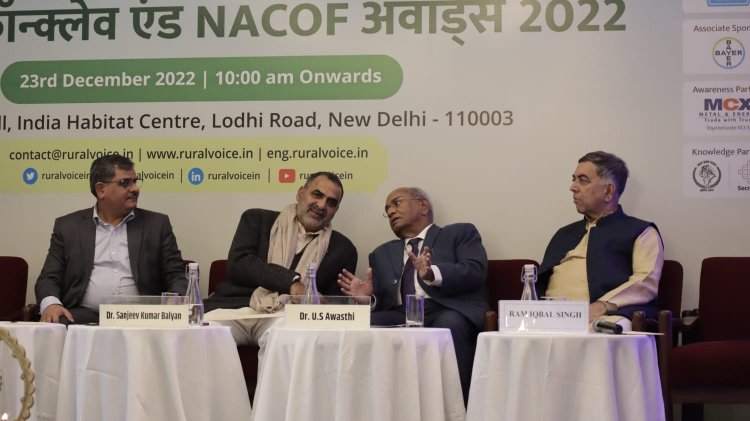
Rural Voice runs websites www.ruralvoice.in in Hindi and eng.ruralvoice.in in English, both of which are quite a hit. It also runs a YouTube channel, ruralvoicein, carrying video stories, interviews and agricultural technology shows. “Rural Voice is not just a news platform - it's for advocacy for good policies for rural India,” Singh explained.
A highlight of the event was the release of a print version of Rural Voice. An award presentation ceremony on the occasion was graced by Balyan and Dr US Awasthi, Managing Director, IFFCO.



 Join the RuralVoice whatsapp group
Join the RuralVoice whatsapp group

















